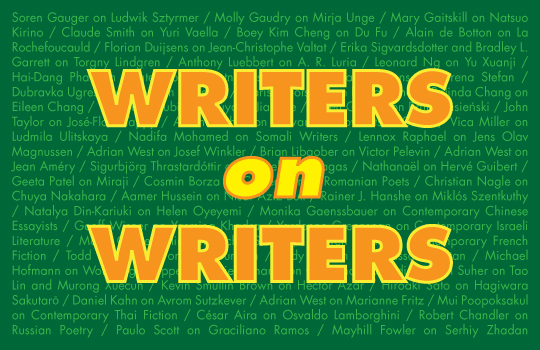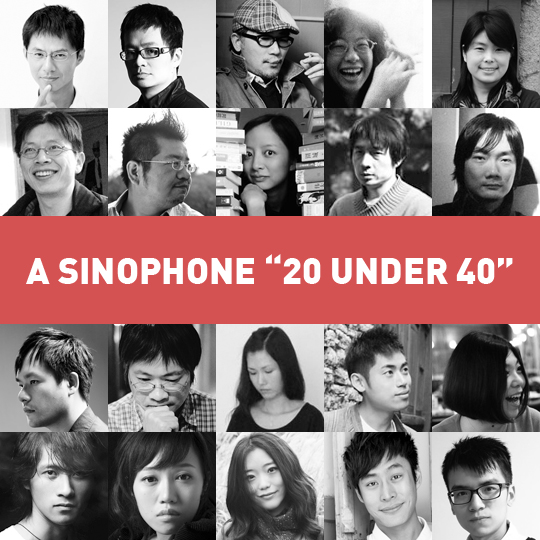One sad summer—possibly in 2010—I came across Vivian Gornick’s The Men in my Life. The book’s premise is simple. Gornick’s essays, written with characteristic clarity and poise, profile writers such as such as H.G. Wells, Loren Eiseley, and James Baldwin. From works and lives so very diverse, Gornick discerns one common thread: loathing, especially of the self, was often a potent inspiration. Loneliness, too.
The book’s title is less playful—and more literal—than one might think. Gornick’s men here are not just any men, nor just any literary men. They are, indeed, the men in her life. Each of her essays resounds as a conversation between two minds; the kind of conversation that doesn’t so much blur the distinction between life and letters as it nullifies the need for it. The book, for me, sparked a lasting fascination with essays by writers on writers—the very best of which open up the conversation to a third party, a sort of kindly voyeur: the reader.
And then a friend introduced me to Asymptote, an online journal with a whole section devoted to precisely that format. What better way to introduce writers little known in the Anglophone world than through the unique voice of another? However intimate the relationship between a writer and their mentor, colleague, rival, or translator, and however close or far apart they may be in age or geography—publishing these essays in English exposes these networks of admiration and craft, revealing tantalizing lines of further inquiry and further reading.
In the four years of the magazine’s existence, Asymptote’s Writers on Writers section has featured pieces from over thirty different languages and countries. We’ve had wildly creative takes on the format, straight-up academic essays, survey pieces… And some very personal reflections. Take, for example, César Aira’s essay on Osvaldo Lamborghini, a cult author in their native Argentina. It is a student’s take on his mentor’s oeuvre—replete with love, envy, and grief. Aira writes:
“The first and last question that arises before his pages, before any of them, is: how can a person write so well?”
That some of WoW’s finest features should have been written by translators may come as little surprise. After all, who reads more closely, converses more deeply with a work—and sometimes, its author—than the one tasked with rendering its unique voice into a different language?
There is Michael Hofmann’s piece on a visit to Wolfgang Koeppen’s house back in 1992, while translating one of the aging writer’s older works. (It had already been decades since Koeppen’s final novel, “so long ago in his life,” writes Hofmann, “and before the beginning of mine.”) What Hofmann found was slightly surreal:
“A sense of dim rooms going off in two or three directions, each one with a writing table in it, each writing table equipped with a bright table-lamp and a typewriter, each typewriter with a piece of paper in it, scrolled half-down and written upon, everywhere a key practically in mid-stroke, mid-letter, mid-air. How could one man keep all these rooms and tables and typewriters happy?”
Robert Chandler’s essay on retranslating twentieth century Russian poetry closes with a powerful plea for expanding the narrow canon of Russian poetry in translation, to make room beside Akhmatova, Mandelstam, Pasternak, and Tsvetaeva for Shalamov and Ivanov, Tyutchev and Fet.
And, not least, there’s Adrian Nathan West’s valiant attempt to rescue Austrian graphomaniac Marianne Fritz from the crazy cat-lady corner of European letters.
Speaking of European letters—Asymptote wouldn’t be Asymptote if we left it at that. We’ve also been able to give you the rundown on Somali fiction, a look at contemporary short stories from conflict-ridden Bangkok, and a Sinophone ‘20 under 40’ (Instalments I, II, III, and IV).
With your support, we can keep making these introductions, bridging writers and writers in translation (in all possible senses of that phrase), and revealing writerly crushes on writers the world over.
***
Luisa Zielinski is Asymptote’s Writers on Writers Editor. Her interview with director Michael Haneke is out in The Paris Review’s current issue, featured (incidentally, and much to her pleasure) alongside an interview with Vivian Gornick.
***
Just FOUR DAYS remain to the end of Asymptote‘s fundraising campaign! A whopping 171 readers have now contributed $12,436, edging us closer and closer to our target! We really hope you’ll keep your fingers crossed for us to hit our goal, so that we can continue operating beyond January 2015.


